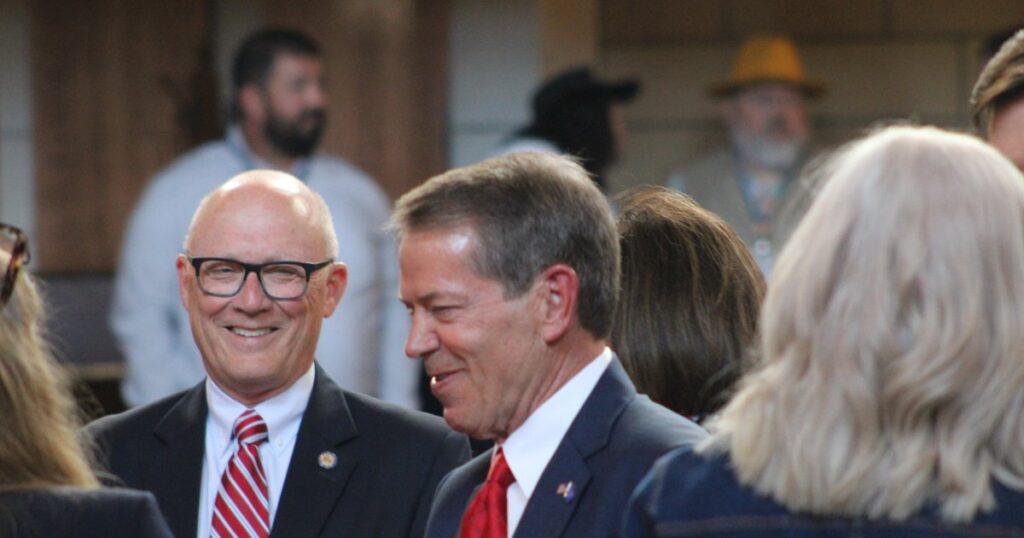The Nebraska Legislature concluded its 2025 session with a mix of commendations for its achievements and warnings about future challenges. On the final day, no bills awaited final passage, and Governor Jim Pillen addressed lawmakers to acknowledge their dedication over the past months.
Governor Pillen expressed his appreciation, acknowledging, “It’s an incredible honor to join you today as we celebrate our shared achievements of this session and our work to serve the people of this extraordinary state of Nebraska.” He highlighted several legislative successes, such as the prohibition of cellphone use in schools, the consolidation of water-related agencies, enhancement of teacher pay through reduced retirement deductions, and mandatory registration for Chinese government representatives. He also lauded the passage of a balanced budget despite a previously anticipated shortfall exceeding $400 million.
Pillen emphasized the fiscal discipline demonstrated in passing what he described as a “historically conservative budget package” that prioritized education, property tax relief, and state safety, stating, “Together, we worked through and passed a balanced, historically conservative budget package that said ‘no’ when we needed to, that put idle pillow case money to work, invested in education and property tax relief and the safety of our state.”
However, Senator Danielle Conrad, a Democrat in the nonpartisan body, criticized the governor’s approach, claiming, “The governor touted the fact that we balanced the budget. We are constitutionally required to do so, and in fact, we did; however, what the governor neglected to mention is that we balanced the budget on the backs of low-income working families.” She noted that families might face higher costs for various services and education due to anticipated fee and tuition hikes.
Governor Pillen urged continued fiscal restraint to facilitate property tax reductions, saying, “It is important that we keep focused on doing more with less, spending less serving Nebraskans so we can decrease spending and actually fix our tax system. We have to fix it because it’s severely broken.”
Speaker of the Legislature, John Arch, a Republican, expressed gratitude to the senators for their extensive efforts. He noted that over 200 of more than 700 introduced bills were passed, with an additional 100 incorporated into successful legislation. Arch reflected, “But we also come to the end of the session with mixed emotions, grateful for the work accomplished, but disappointed we couldn’t do more. We all experienced that, but that is the motivation to return in January and pick up the work where we left off. There is always more work to do and more opportunity to make Nebraska an even better state in which to live our lives and build our dreams.”
Looking ahead, Arch predicted that budget issues would dominate next year’s session, stating, “I will predict that our biggest challenge next year will be our budget. Once again, we sent a balanced budget to the governor, but we always face mid-biennium budget adjustments, and next year will be no different. And in fact, could be more challenging… There is considerable uncertainty in the world that could make accurately predicting our fiscal future more difficult. This uncertainty should be in your mind as you think about bills for next session, keep our budget in mind. Pay attention to what is happening in DC and the impact any action there can have on state funds.”
The state is expected to conclude the upcoming two-year budget cycle slightly above its required 3% reserve. However, potential federal proposals, such as cuts to Medicaid and SNAP benefits, could impose substantial additional costs on Nebraska, necessitating further legislative adjustments to maintain budget balance.
More from the Unicameral:
Bill aimed at banning consumable hemp products like Delta 8 doesn’t pass in Legislature
Pillen celebrates online protections, private school tax breaks approved
Bill defining ‘male’ and ‘female’ for Nebraska school sports participation passes
Legislature scales back sick leave, doesn’t change minimum wage
Legislature debates local government oversight, school finance
Legislature advances bill banning some consumable hemp products, taxing others
Legislature upholds Pillen’s veto of bedbug bill
Senators question Pillen’s appointments for Medical Cannabis Commission
Lower minimum wage revived, but may wait until next year





